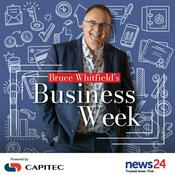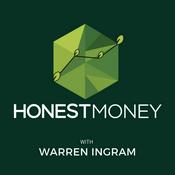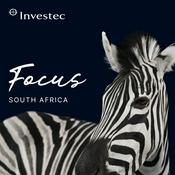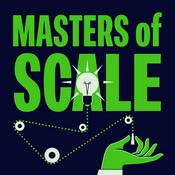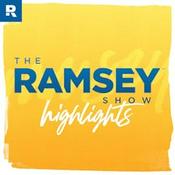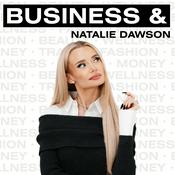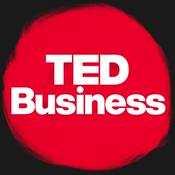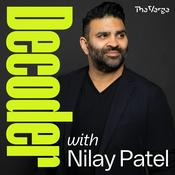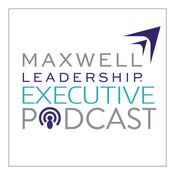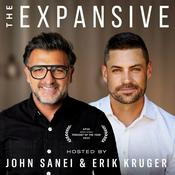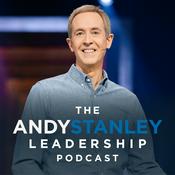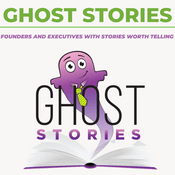11 episodes
- Send us a text
Synopsis
For the 10th episode of Unchecked, Rachel and Dan talk to Dr. Amelia B. Finaret, food economist and clinical dietitian about the state of nutrition misinformation. With the release of the latest dietary guidelines – some of which are not founded on sound nutrition science – we take a look at both the classic and newer myths around food. Dan uses the discussion to arrive at the lens of Making Hot Dogs and Rachel applies Diet Culture to our work as UX designers.
Stories
Robert Caro on Robert Moses
Northern State Parkway (see section on 1929 compromise)
AI-Generated Disinformation in Europe
Report for October 2025
Interview with Amelia Finaret
Amelia Finaret
Dr. Finaret’s book, Food Economics
MyPlate.gov (today)
MyPlate.gov (from Archive.org, at the time of recording)
Dietary Guidelines published by US Government
Healthy Hunger Free Kids Act
What to Eat Now, by Marion Nestle
Academy of Nutrition and Dietetics
American Diabetes Association recipes
Lenses
Diet Culture
How does the system send signals about the user's "goodness" based on what they are consuming or acting on?
How does the system reward “good” behavior and penalize “bad” behavior?
How does the system decide what is good or bad? Who gets to make that decision, whose world view is reflected in that framework?
Making Hot Dogs
How does the system process original source material?
What role does it play in the "supply chain" of information?
How recognizable is the original source material in the system’s content?
_____________________________________________________
Personnel
Dan Brown, Host
Rachel Price, Host
Emily Duncan, Editor
Music
Turtle Up Fool, by Elliot
_____________________________________________________
Unchecked is a production of Curious Squid
Curious Squid is a digital design consulting firm specializing in information architecture, user experience, and product design - Send us a text
SYNOPSIS
Zanagee Artis, a climate advocate and educator with Natural Resources Defense Council, joins Rachel and Dan to talk about disinformation in arctic and coastal drilling. Zanagee describes the challenges of addressing disinformation when the time horizons of climate research spans decades. Inspired by this discussion, Rachel coins the lens of Time Feel. Dan, impressed by efforts to close the physical distance between policymakers and drilling in the arctic, suggests the lens of Distance.
STORIES OF DISINFORMATION
White House destruction photo
Katie Harbath’s Substack
Black Death poem
Centuries of Black Death misinformation started with a poem
INTERVIEW WITH ZANAGEE ARTIS
Zanagee Artis
A Kids Book About Climate Change
Kimberly Miner’s study on alaskan arctic impacts
Gwich’in people of Alaska
Iñupiat people of Alaska
Coastal Plain Caribou Alaska
Taylor Oil Spill
Radioactive waste water from fracking
Oil and gas sponsoring community and social programs
LENSES
Distance
The gap between a personal context and the context of the information creates an opportunity for misinformation. (e.g. global warming isn't real when it's snowing in my town).
How does the system help users bridge the gap between their personal context and other contexts?
How is the information contained in the system distanced from the person consuming it? How does the system close the gap?
How much does the system expect users to close the gap between themselves and the information?
Time Feel
In music, time feel is how the musician interprets time while playing. More than rhythm or beat, it’s how the music creates a feeling of time passing.
How does the system treat the passage of time?
How does the system handle time horizons and the differing perceptions of speed?
How does this thing support or not support the potential variations in time?
What role does urgency play in the system?
_____________________________________________________
Personnel
Dan Brown, Host
Rachel Price, Host
Emily Duncan, Editor
Music
Turtle Up Fool, by Elliot
_____________________________________________________
Unchecked is a production of Curious Squid
Curious Squid is a digital design consulting firm specializing in information architecture, user experience, and product design - Send us a text
CONTENT WARNING
This episode of Unchecked deals with the sensitive topic of gun violence.
SYNOPSIS
Nick Suplina, Senior VP for Law & Policy at Everytown for Gun Safety joins Rachel and Dan to talk about the long-standing and persistent disinformation campaign by the gun lobby. Nick highlights the main messages and techniques in use, and we explore the challenges of celebrating prevention. Rachel describes the Lens of Despair and Dan digs into the Lens of Status Quo.
STORIES OF DISINFORMATION
Did moldy bread cause the Salem witch trials?
Debunking the moldy bread theory (Salem Witch Museum)
Pushing back against disinformation
George Stephanopolous cuts off the VP (Rolling Stone)
Airports refuse political video at TSA checkpoint (CNN)
INTERVIEW WITH NICK SUPLINA
Everytown for Gun Safety
About Red Flag laws (Everytown)
Colorado’s new assault weapons ban (CBS News)
2022 Safer Communities Act (Wikipedia)
LENSES
Lens of Despair
How does the system alleviate or exacerbate or manipulate the feeling that nothing can be improved?
How does the system create a sense of hope?
How does the system intentionally give agency to its users?
Lens of Status Quo
What role does status quo play in this domain? What is this system’s role relative to the status quo?
How does the system discourage users from questioning the status quo?
_____________________________________________________
Personnel
Dan Brown, Host
Rachel Price, Host
Emily Duncan, Editor
Music
Turtle Up Fool, by Elliot
_____________________________________________________
Unchecked is a production of Curious Squid
Curious Squid is a digital design consulting firm specializing in information architecture, user experience, and product design - Send us a text
SYNOPSIS
Brandon Schauer from Rare, a conservation nonprofit, talks to Rachel and Dan about ways to modify behavior to help save the planet. Climate change and its solutions are often too big for an individual person to connect with, so Brandon has developed strategies to meet people where they are. These strategies short-circuit climate misinformation altogether.
STORIES
Banana propaganda
Annalee Newitz’s book Stories Are Weapons
The 1954 Guatemalan Coup (Wikipedia)
NPS, the continuing saga
National Park signage encourages the public to help erase negative stories at its sites
National Parks Are Told to Delete Content That ‘Disparages Americans’
This Is What Censorship Looks Like in a National Park: The First Park Sign That Came Down
Park Service Is Ordered to Take Down Some Materials on Slavery and Tribes
Trump moves to scrub national parks sites of signs that cast America in a 'negative light'
INTERVIEW
Entities responsible for greenhouse gas emissions: By Country; 57 companies responsible for 80% of emissions
Biden cites Will & Grace in endorsement of same-sex marriage
Primetime in a warming world
Hyperobjects is a term coined by British philosopher Timothy Morton in their book The Ecological Thought
LENSES
Social Awareness
Everyone can be part of a solution to large problems, and the ecosystem can help users understand how they may be connected to others.
How does your system help people understand they are not alone?
How does your system prioritize meaningful connection over gamified social metrics?
Hyperobjects
Based on the concept from Timothy Morton, hyperobjects are concepts that are so big they are difficult for people to understand them fully. Information ecosystems may be connected to or related to hyperobjects, introducing specific challenges.
How does the structure of your system help users focus on the most relevant part of a large problem space?
How does the structure of
_____________________________________________________
Personnel
Dan Brown, Host
Rachel Price, Host
Emily Duncan, Editor
Music
Turtle Up Fool, by Elliot
_____________________________________________________
Unchecked is a production of Curious Squid
Curious Squid is a digital design consulting firm specializing in information architecture, user experience, and product design - Send us a text
SYNOPSIS
Dr. Claire Wardle is a disinformation expert and communications professor at Cornell University. She joins Rachel and Dan to talk about the history of disinformation study, how new technology introduces new challenges, and about how the information ecosystem might change in the future. She offers insights into the psychology of disinformation. From the conversation, Rachel elaborates on the lens of Friction, and Dan talks about a lens he can only call “Middle of the night.”
STORIES OF DISINFORMATION
The Propaganda of Hearst and Pulitzer
The Spanish American War and the Yellow Press (Library of Congress)
The Gilded Age (Wikipedia)
Bedlam and Squalor and Worse, Oh My
Transcript of August 11 press conference (Roll Call)
Trump exaggerates DC crime while ordering police take-over and National Guard deployment (Politifact)
Trump’s DOJ claims credit for falling crime rate in DC (Justice.gov)
INTERVIEW
Dr. Claire Wardle
Australian drama series about the wellness industry: Apple Cider Vinegar
Jim Acosta “interviews” LLM based on Parkland shooting victim
Dr. Noc, social media science influencer, who may not be scruffy enough to be believed
LENSES
Friction
For designers, "friction" represents how much the experience intrudes on consuming information or completing tasks. Experiences increase the intrusion to discourage destructive actions (like deleting important information). Additionally, it is often said that lies are “low friction” and truth is “high friction”. That is, understanding and internalizing a lie is less cognitive demanding than doing so with the truth.
How does the system use friction to engage users’ critical thinking skills?
How does the system reduce the friction on high quality information?
How does the system titrate the amount of friction in the experience relative to the quality of information?
Middle of the night
Users are most susceptible to disinformation when they are at their most vulnerable, like in the middle of the night with a health scare.
How does the system support users who are agitated and vulnerable?
How does the format of the information take into account a user who is agitated or vulnerable?
How would the system fare if it catered to someone using it in an extrem
_____________________________________________________
Personnel
Dan Brown, Host
Rachel Price, Host
Emily Duncan, Editor
Music
Turtle Up Fool, by Elliot
_____________________________________________________
Unchecked is a production of Curious Squid
Curious Squid is a digital design consulting firm specializing in information architecture, user experience, and product design
More Business podcasts
Trending Business podcasts
About Unchecked: The architecture of disinformation
Misinformation and disinformation thrive in today’s technology landscape, and arguably present the greatest threat to modern society. Information architecture – the practice of designing and managing digital spaces – has an opportunity to intervene. This podcast looks at disinformation from an information architecture perspective, and considers ways to expand the practice of IA to address this new reality. ••• What is Information Architecture? Information architecture is the practice of designing virtual structures – the shape and form of online spaces and digital products. When you click on a navigation menu or follow the steps in a process, you're experiencing the information architecture of a web site or digital product. ••• What is disinformation? Understanding disinformation is the purpose of this podcast. We are trying to figure out exactly what it is and what it means. If information architecture is the practice of designing virtual spaces, then disinformation is something that can occupy that space to disrupt the user's experience. Alternatively, it is a way of manipulating the space (like flooding it with irrelevant facts) to achieve an end unrelated to the space's original intention.
Podcast websiteListen to Unchecked: The architecture of disinformation, A Bit of Optimism and many other podcasts from around the world with the radio.net app
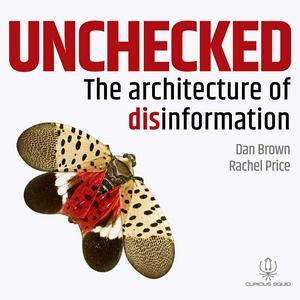
Get the free radio.net app
- Stations and podcasts to bookmark
- Stream via Wi-Fi or Bluetooth
- Supports Carplay & Android Auto
- Many other app features
Get the free radio.net app
- Stations and podcasts to bookmark
- Stream via Wi-Fi or Bluetooth
- Supports Carplay & Android Auto
- Many other app features


Unchecked: The architecture of disinformation
Scan code,
download the app,
start listening.
download the app,
start listening.


